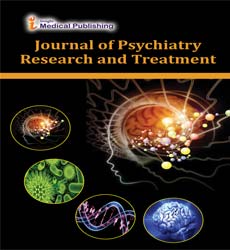Irrational beliefs and self-efficacy in romantic relationships as predictors of psychological wellbeing among late adolescents
Abstract
Statement of the Problem: The main purpose of this study is to examine the predictive effect of irrational beliefs and self-efficacy in romantic relationship on psychological well-being among late adolescence. In addition, this study also examined whether the participants’ irrational romantic relationship beliefs, self-efficacy in romantic relationships, and psychological wellbeing differ according to sociodemographic characteristics.Methodology and Theoretical Orientation: 257 people between the ages of 18-24 and having romantic relationships participated in the study. Data were collected using the sociodemographic information form, the Irrational Romantic Relationship Beliefs Scale, Self-Efficacy in Romantic Relationships Scale and the Psychological Well-being Scale.Findings: Results indicated that individuals with high self-efficacy regarding their romantic relationships have higher psychological well-being. Moreover, sociodemographic data showed that the participants’ irrational beliefs about their romantic relationships differed significantly according to the duration of relationship; the self-efficacy levels of participants about their romantic relationships differed significantly according to gender and income status; psychological well-being differed according to age, duration of relationship and income status.Conclusion & Significance: According to the results, high self-efficacy perception of individuals in romantic relationships increases their psychological well-being. Therefore, it is believed that it is important for therapists working on the psychological well-being of their clients, to focus on their client's relationship status and their self-efficacy levels in the relationship during the psychological intervention sessions.
Open Access Journals
- Aquaculture & Veterinary Science
- Chemistry & Chemical Sciences
- Clinical Sciences
- Engineering
- General Science
- Genetics & Molecular Biology
- Health Care & Nursing
- Immunology & Microbiology
- Materials Science
- Mathematics & Physics
- Medical Sciences
- Neurology & Psychiatry
- Oncology & Cancer Science
- Pharmaceutical Sciences
